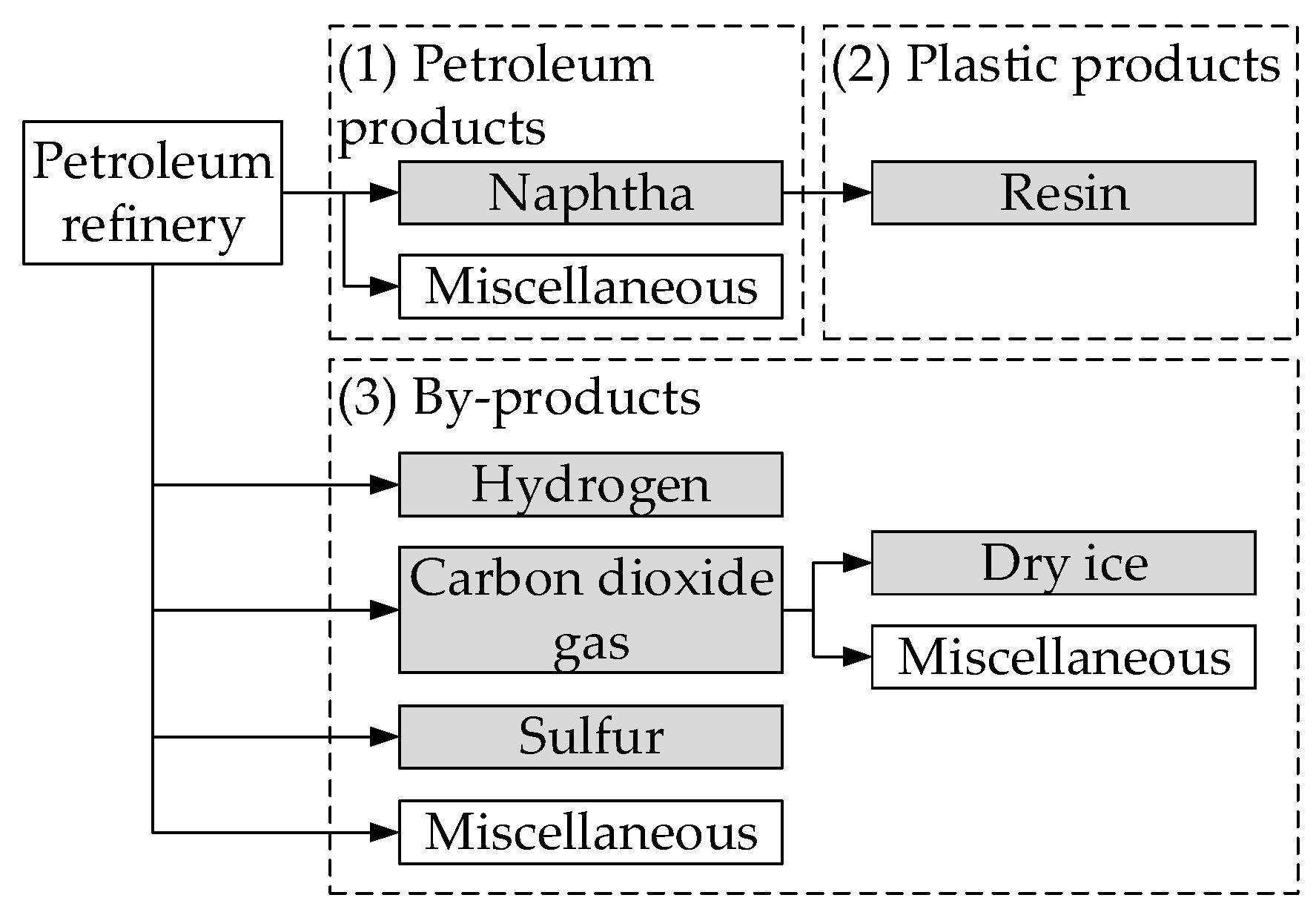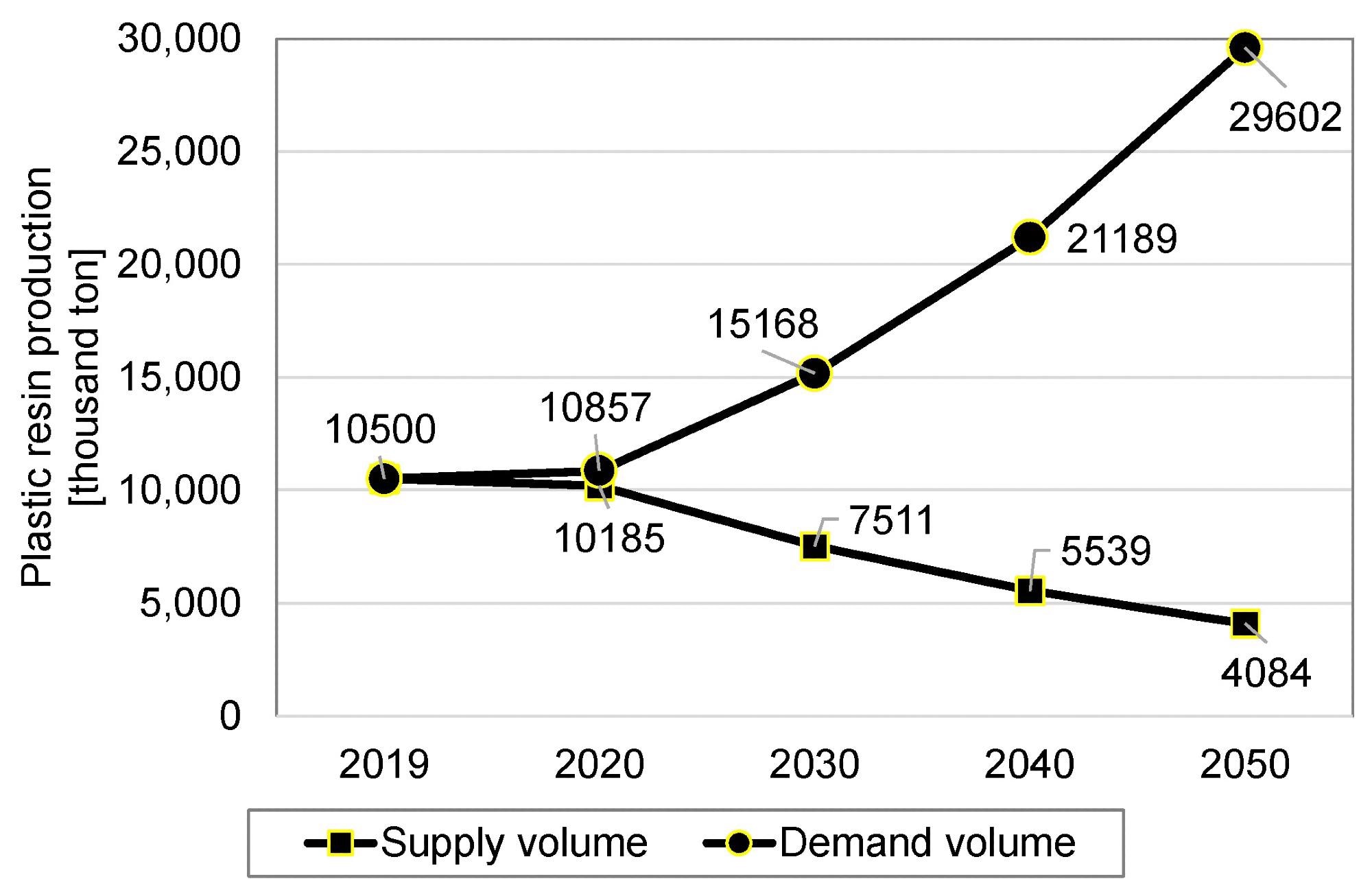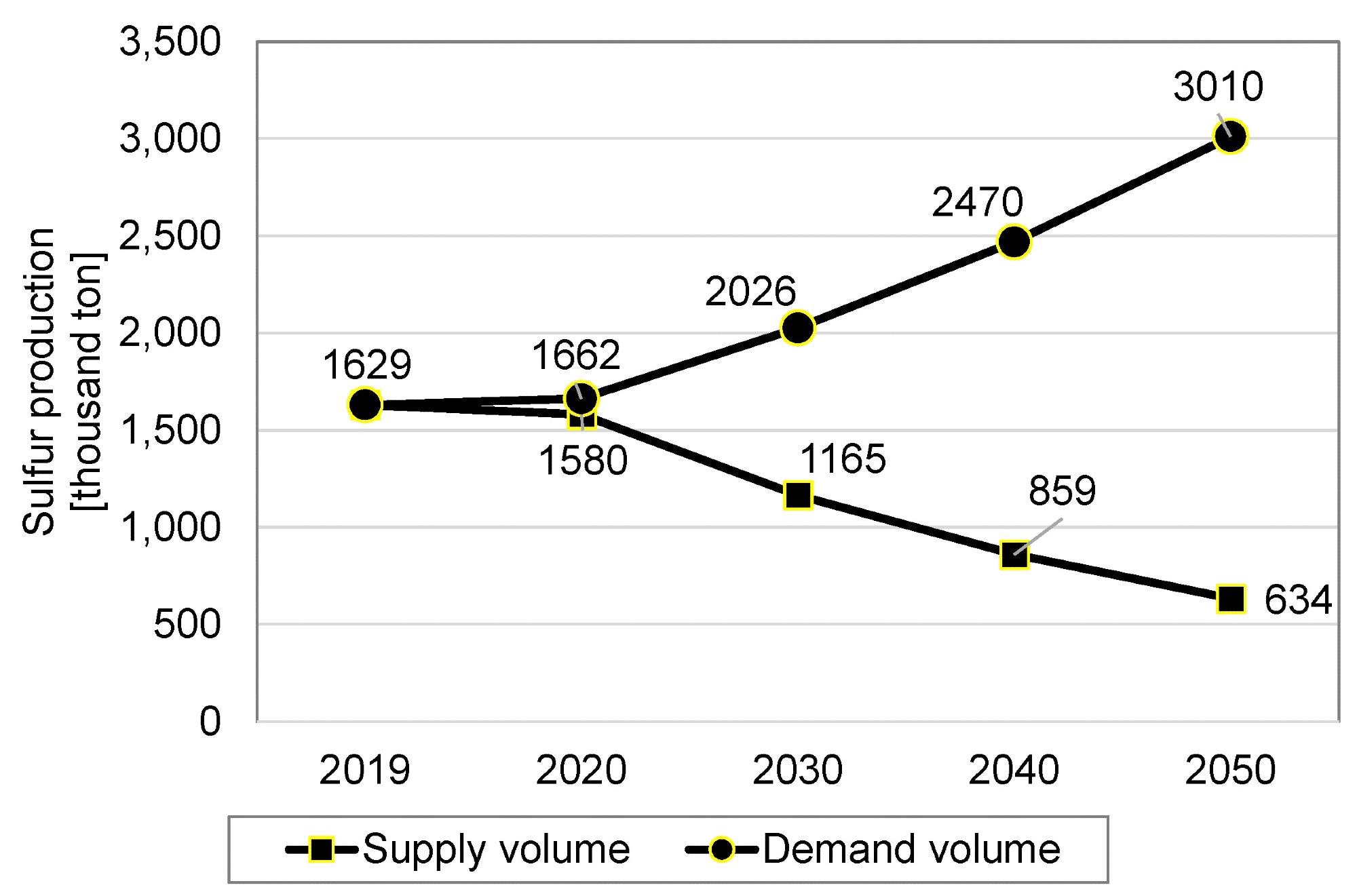The need for the world to move to a post-carbon economy has become clear in recent years. International agreements, including COP26 and the Paris Agreement, have dedicated governments to limiting the global temperature rise to 2oC by the end of the 21st century to avoid the worst effects of climate change.

Processes related to petroleum refining. Image Credit: Matsumoto, R & Tabata, T et al., Applied Sciences
Growing evidence has emerged in the past few decades of the damage that human activity is causing to the earth. Instances of extreme weather events accelerating and global ice shelves retreating at an alarming rate are releasing vast amounts of water into the oceans and causing global sea levels to rise. Moreover, human activities have caused unprecedented damage to natural biodiversity. Reducing emissions by 45% by 2030 and to net-zero by 2100 is vital.
Reducing Petrochemical Use
Fossil fuels derived from petrochemicals are the main source of carbon emissions worldwide. Their exploitation for power generation and fuel is a key problem in the modern world. Furthermore, these are limited resources, and if they continue to be consumed at current rates will face a supply crunch in the future.
The supply chain of petrochemicals is complicated, and fossil fuels are used for products such as pharmaceuticals, plastics, and fertilizer. Fossil fuel use is intrinsically linked to every sector of industry and commerce, which makes total decarbonization highly challenging, and intense research focus has been placed on replacing petrochemical-derived products with more renewable and sustainable materials.
Furthermore, by-products of the petrochemical industry are used in several other industries. These by-products include carbon dioxide, hydrogen gas, and sulfur. For instance, refrigeration units rely on carbon dioxide, and hydrogen gas is used for alternative fuels. Therefore, it can be seen that reducing society’s dependence on fossil fuels will have wide-reaching socioeconomic effects.

Outlook of supply and demand volume of plastic resin production. Image Credit: Matsumoto, R & Tabata, T et al., Applied Sciences
The Study
The main aim of the research is to clarify the effects of reducing petroleum consumption in Japan on the domestic supply chain. Firstly, the petroleum refining processes have been defined and organized into a material flow by the authors. Secondly, the study estimates the outlook for reducing petroleum consumption and achieving temperature rise targets by analyzing outlooks for by-products, domestic petroleum treatment, and products. By comparing results with demand, the authors have identified if there are any output gaps.
Two of the stated intentions of the study are to demonstrate the effect of reducing petroleum consumption in Japan and its impact on the supply chain and to provide an impetus for policymakers to examine the challenges from a socioeconomic perspective and examine and mitigate any obstacles.
The research has considered numerous existing studies as a basis for elucidating the challenges and impacts as well as how to meet global temperature mitigation goals. Current studies have examined various aspects of social systems, energy transformation strategies, renewable energy technologies, the transportation industry (including maritime transportation,) national policy and innovation, climate justice, and the effects of climate change on cities and the social and economic structure of countries.
It has been noted in the research that whilst plenty of studies have concentrated on the technical aspects, challenges, and potential of replacing fossil fuels with renewable energy sources, there has been little research on the potential economic and social impacts of reducing fossil fuel use and reaching climate change targets. This novel study aims to provide pertinent information to help fill this knowledge gap. A limitation of the study is its focus on only a few petroleum products.

Outlook of supply and demand volume of sulfur production. Image Credit: Matsumoto, R & Tabata, T et al., Applied Sciences
Research Conclusions
Several observations and conclusions have been made by the authors based on their research, along with future perspectives. Production of plastic resins in Japan, for instance, is predicted to reduce to 7511 tons by 2030 from 10,500 tons in 2019 if current petroleum consumption reduction patterns continue. Japan aims to increase plastics recycling to help limit global temperature rises and reduce reliance on fossil fuels, but this requires increased waste separation and the mass production of plastics from biomass.
Domestic sulfur production will also decrease in the coming years in Japan. Future domestic demand will be affected, and this could be satisfied by adjusting export volumes. Dry ice, which is a product produced from fossil fuel by-products, may be difficult to secure a supply of to meet demand in the future in Japan. Import and technical challenges will need to be addressed to cover the shortfall in dry ice production.
The authors have stated that whilst this study applies to Japan, it can be transposed to other nations, and national governments must recognize that significant technical challenges must be overcome and transitions in policies, industry, and social systems must be implemented to address the issues caused by moving toward a zero-carbon economy.
Further Reading
Matsumoto, R & Tabata, T (2022) Impact and Challenges of Reducing Petroleum Consumption for Decarbonization [online] Applied Sciences 12(8) 3738 | mdpi.com. Available at: https://www.mdpi.com/2076-3417/12/8/3738
Disclaimer: The views expressed here are those of the author expressed in their private capacity and do not necessarily represent the views of AZoM.com Limited T/A AZoNetwork the owner and operator of this website. This disclaimer forms part of the Terms and conditions of use of this website.